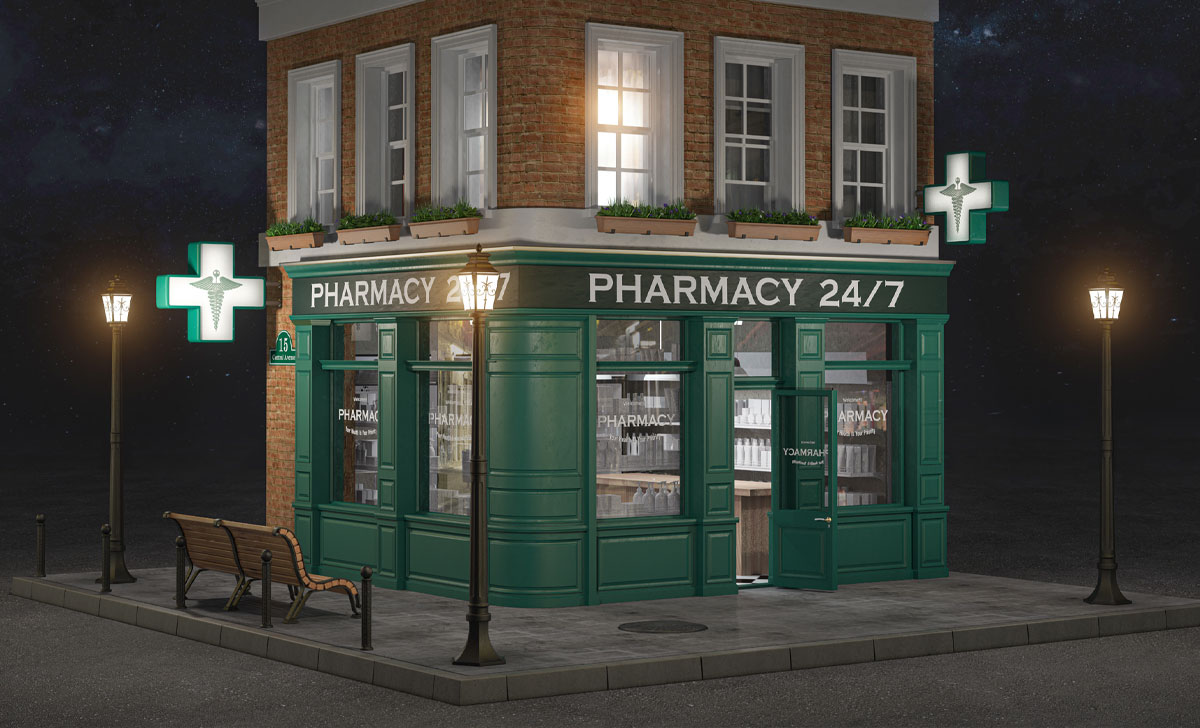FINTAN MOORE WONDERS IF THE CURRENT LATE-NIGHT OPENING HOURS OF MANY PHARMACIES WILL CONTINUE IN THE LONGER TERM
As time marches on, every society evolves and opinions change regarding what should be seen as normal or sensible. Many of you will have seen the famous photo from 1964 of a male Boston Marathon official attempting (unsuccessfully) to physically prevent a woman named Kathrine Switzer from taking part in the event. The official was a product of his time, and had a genuine belief that the rules precluding women were justified because marathons had been declared as being excessively demanding for female runners. He later saw the error of his ways and apologised for his actions. History is packed full of other examples of behaviour which were socially acceptable but now seem bizarre, including witch trials, drink-driving, and believing that Charlie Haughey was honest. (For any readers too young to remember Charlie Haughey, let’s just say it was more likely that a witch trial might actually find a witch.)
I’ve recently started wondering whether the current late-night opening hours of many pharmacies will continue, or if they will gradually get wound back over the next couple of decades, to be looked upon by subsequent graduates with an air of bemusement. The late-opening pharmacy didn’t exist much before the 1990s. It was more usual to have a straight 9-to-6 most days, with a single late-night one day per week, often on a Thursday. Similarly, Sundays tended to be closed, or on a rota between a few places. Then, over the last 30 years, the mentality seemed to be ‘If I open it, they will come’. Certainly the first pharmacists to open late did alright, but they just started an arms-race where everybody else joined in, and the net effect was that the same overall amount of business got spread out everywhere, but also throughout a longer time each day.
Over the last 30 years, the mentality seemed to be ‘If I open it, they will come’
So, when young, and not-so-young, pharmacists are weighing up the pros and cons of the profession, it’s inevitable that working until 9 o’clock, or even 8 o’clock at night, is a significant con. It impacts negatively on quality of life in terms of taking part in sport, getting home to a young family, doing night-classes, or just socialising. There are other reasons for pharmacists to find the job demanding or stressful, but many of us who don’t mind the ‘slings and arrows’ still don’t want to be getting home from work at 10 o’clock at night. This is as true for employers as it is for employees, but obviously it’s the former that have more power to make changes. I suspect that a lot of owners will be crunching the numbers to see if they can afford to drop some of the later opening hours, and I’m curious to see if there will be a noticeable reduction in late-night openings.
SICK AND TWISTED
In what may be another example of behaviour that will in time be regarded by future generations as clearly wrong, the failure of the HSE to include Cariban on any of the State schemes ticks all the boxes. Many pregnant women experience some degree of morning sickness, and it’s unpleasant, even when it’s mild. However, the extreme level of nausea and vomiting endured by women with hyperemesis can be hellish. It’s not uncommon for sufferers to end up hospitalised on a drip as a result of dehydration caused by the inability to hold down f luids, let alone food. It’s hard not to feel that there are senior people in the HSE and the Department of Health who have failed to grasp that patients complaining about hyperemesis are not being somehow ‘soft’ or ‘precious’. It is clearly immoral to not fund the most suitable drug available to treat the condition. The point has been validly made that the HSE pays for drugs for erectile dysfunction, suggesting a bias in favour of finding money for men’s problems rather than women’s.
There is also the usual lack of ‘bigger-picture thinking’ at play here. The cost of a hospital bed for a patient to be drip-fed is probably €2,000 per night, which would pay for a lot of packs of Cariban. Throw in the fact that patients with severe hyperemesis can end up malnourished to the point that it impacts on the development of the foetus, leading to subsequent problems when the baby is born. The issue seems to have finally hit the radar screen of Government, so maybe we’ll finally see a change in the status quo, but hopefully we won’t see the creation of a whole new scheme to do it.
DPS DOWN, AND DOWN AGAIN
Given that the blank cheques thrown around to fund the war on Covid will eventually have to be paid, I would have
expected the HSE to be minding the pennies where it could. Therefore, I was kind of surprised when the drop in the DPS threshold from €114 to €100 kicked-in on 1 January, instead of getting delayed by a few months. But what was even more surprising was the further drop announced as a ‘cost-of-living’ measure, from €100 down to €80.
I am trying to remember the last time anybody actually complained that the DPS threshold was too high. There was definitely the occasional grumble at €144, and it’s likely that some people quietly stopped collecting medication because they couldn’t pay. However, I’ve almost never had a complaint about €114, and €100 would obviously have been even better again. So I wonder if the Government has really thought this latest reduction through, and I think they should have saved the money to fund other initiatives, rather than giving away money that nobody has been asking for.







